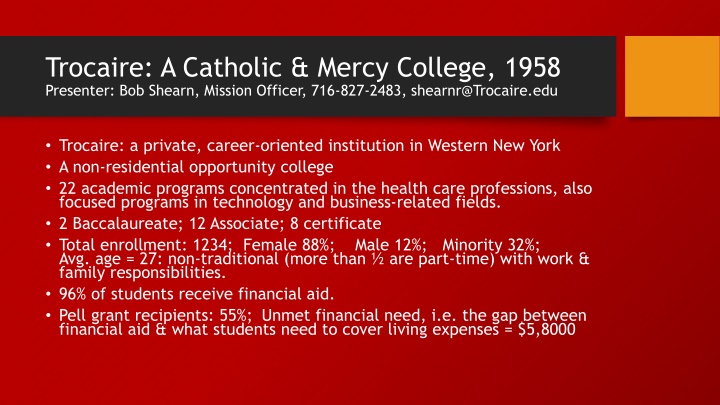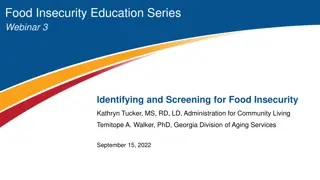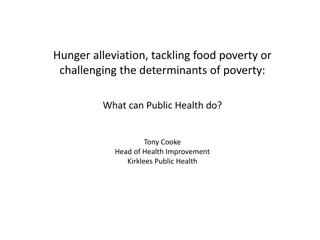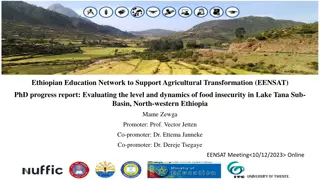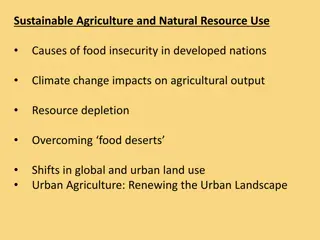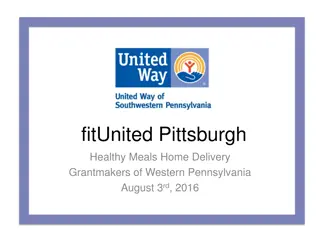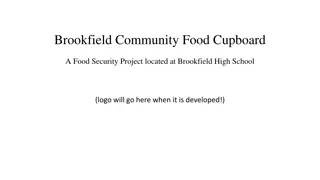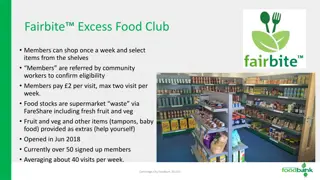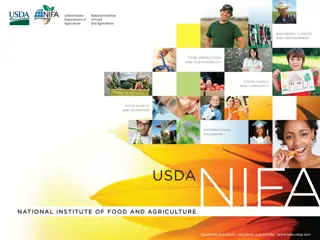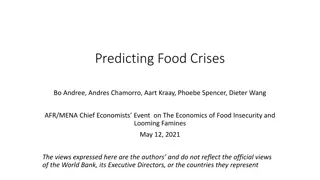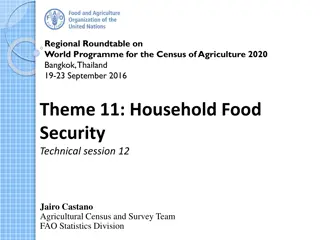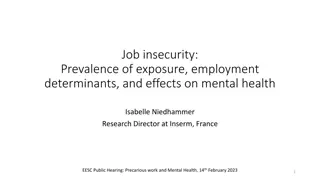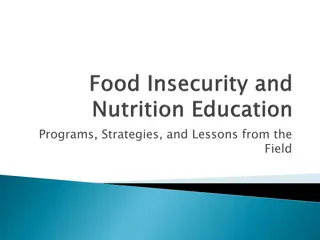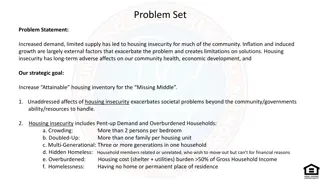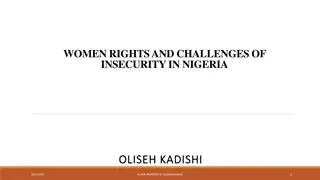Addressing Food Insecurity at Trocaire College: Initiatives and Support Programs
Trocaire College, a Catholic and Mercy institution in Western New York, faces food insecurity among its student population. Research data shows high poverty rates. Initiatives such as Catherine's Cupboard, a food pantry, and the Student Emergency Fund aim to support students facing food insecurity and financial hardships.
Download Presentation

Please find below an Image/Link to download the presentation.
The content on the website is provided AS IS for your information and personal use only. It may not be sold, licensed, or shared on other websites without obtaining consent from the author.If you encounter any issues during the download, it is possible that the publisher has removed the file from their server.
You are allowed to download the files provided on this website for personal or commercial use, subject to the condition that they are used lawfully. All files are the property of their respective owners.
The content on the website is provided AS IS for your information and personal use only. It may not be sold, licensed, or shared on other websites without obtaining consent from the author.
E N D
Presentation Transcript
Trocaire: A Catholic & Mercy College, 1958 Presenter: Bob Shearn, Mission Officer, 716-827-2483, shearnr@Trocaire.edu Trocaire: a private, career-oriented institution in Western New York A non-residential opportunity college 22 academic programs concentrated in the health care professions, also focused programs in technology and business-related fields. 2 Baccalaureate; 12 Associate; 8 certificate Total enrollment: 1234; Female 88%; Male 12%; Minority 32%; Avg. age = 27: non-traditional (more than are part-time) with work & family responsibilities. 96% of students receive financial aid. Pell grant recipients: 55%; Unmet financial need, i.e. the gap between financial aid & what students need to cover living expenses = $5,8000
Research Data on Food Insecurity Hindering student learning, retention & success Hunger Assessment Survey: FA 2017 WNY Regional Demographics Hunger is pervasive in WNY 31 % living in poverty (2017) .more than half of all children in the city of Buffalo live in poverty. 13% or 179,000 people in the greater Buffalo area are food-insecure, i.e. not having consistent access to enough nutritious food to lead a healthy life. (Food Bank of WNY) Causes: loss of job, inadequate wages, injury, illness, lack of access to SNAP, costs associated w/ unexpected hardships. Trocaire s student demographics reflect the poverty/hunger rates listed above. National Study: Food Insecurity on Campus 2015: Sarah Goldrick-Rab 4,000 students 10 community colleges. 4 questons taken from Goldrick- Rab s National Study. More than (52%) of CC students struggle w/ food insecurity many w/ disrupted eating patterns (reduced or skipped meals went hungry). 104 students participated. Results indicated that 1/3 of Trocaire s students experience various degrees of food-insecurity throughout the year. Two types of students: 1. students in poverty before college: hunger = a pre-existing condition. 2. Lower middle-class students: food insecure for the first time b/c of expenses related to higher ed. underscores the gap between FA and living expenses. Research data was presented to the Administrative Advisory Council ( a mid-level administrative body) in the form of a proposal approval by president in SP 18 Grant funding sought .Food Pantry opens in FA 18. SNAP: not easily accessed: school doesn t meet work requirement SNAP provisions are confusing. 20% of students in G-R s study received food stamps.
Catherines Cupboard: Meeting the Unmet Need. Honoring the legacy of Catherine McAuley A free on-campus food pantry serving students who experience food-insecurity. Opened in FA 18 after research based on a national study, regional demographic data, and an on-campus survey (104 responses) showed that 1/3 of Trocaire s students experienced food insecurity during the calendar year. Staffed by a part-time employee (20 hrs. per week) Training at the Food Bank of WNY. Provisioned solely by donations from faculty, staff, and from local parishes (food and monetary donations). Food and toiletry drives are held throughout the year. Process: Required: Student or employee ID Application for first-time user (basic contact information) Food for the day or the week to address food-insecurity in the home Information/counseling available on additional social services in the community.
Student Emergency Fund Supports student success, by addressing unforeseen financial needs. Focus on urgent needs: food, rent, utility bills; safety & transportation needs; loss from fire, flood, theft, & natural disasters, etc. Allotment capped at $250 (exceptions can & have been made) Funded solely through donations by faculty and staff. Process Online application: Student ID, contact info, stated need & how funds will be used. Review by Dir. of Mission phone or face-to face interview if needed. Review by SEF committee Decision in 3 -5 days (typically 1 to 2 days) Checks are written to payees only students provide paperwork gift cards suffice for food and gas.
